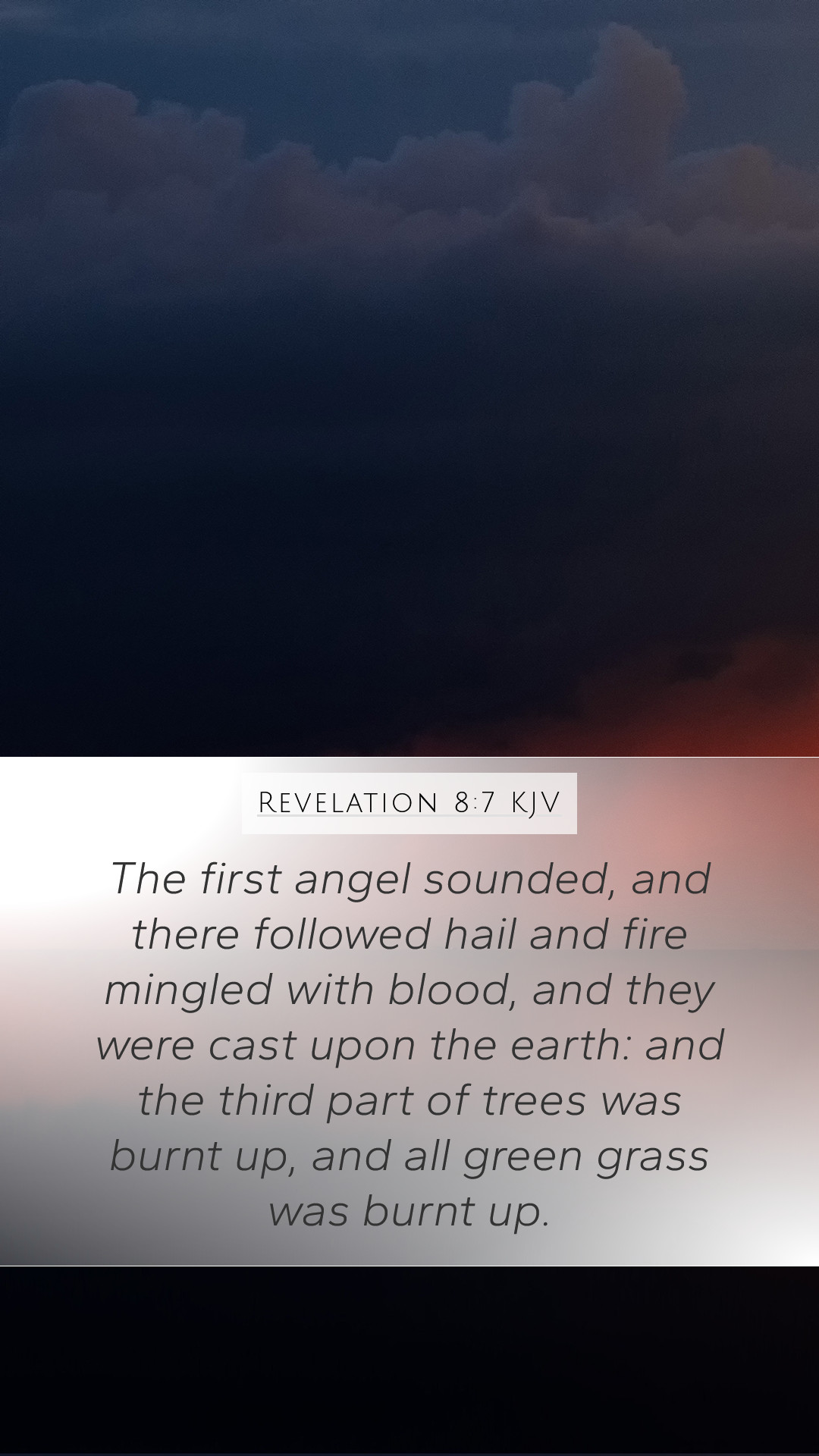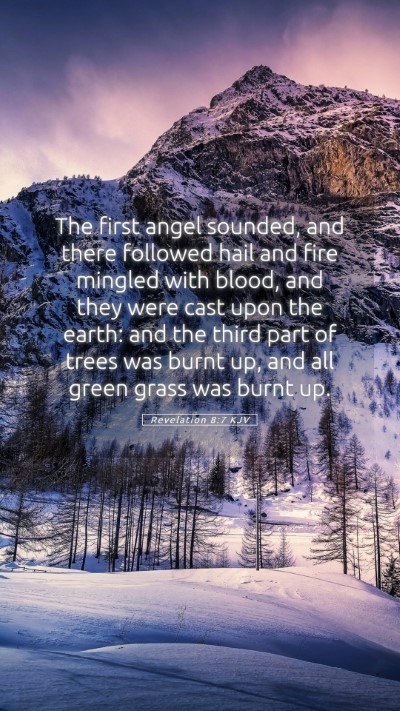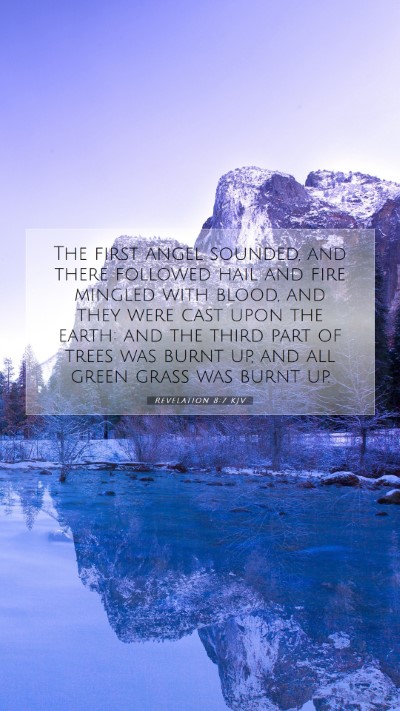Understanding Revelation 8:7
The verse Revelation 8:7 states: "The first angel sounded, and there followed hail and fire mingled with blood, and they were cast upon the earth: and the third part of trees was burnt up, and all green grass was burnt up." This verse marks the beginning of the trumpet judgments as described in the Book of Revelation, a significant moment in eschatological teachings.
Bible Verse Explanations
Revelation 8:7 is rich in imagery and prophecy, calling for an in-depth Bible verse analysis to appreciate its full meaning and implications. The sounding of the first angel's trumpet signals devastating plagues that serve as divine judgment upon the earth, reflecting God's sovereignty and control over natural and supernatural events.
Symbolism and Imagery
According to Matthew Henry, the imagery of hail and fire mingled with blood signifies a horrific calamity, indicating God's wrath against the unrepentant heart of humanity. The combination of these elements points to a cataclysmic event, illustrating that sin incurs serious consequences and alerts believers to remain vigilant in faith.
Albert Barnes expands on this interpretation by emphasizing that the "third part" of trees and all green grass being burned up signifies the significant destruction resulting from divine judgment, not merely on land but also symbolically representing the spiritual state of humanity. It represents a loss of sustenance and the fragility of life amidst the divine wrath.
Adam Clarke's commentary provides additional historical context, suggesting that this imagery could relate to various natural disasters that God has employed in the past to signal judgment, aligning this event with divine warnings sent through nature. He highlights God's intensity in executing justice against sinfulness, reaffirming the seriousness of disobedience to divine commandments.
Significance of Revelation 8:7
This verse serves multiple purposes within the context of Scripture. It is not only a prophetic warning but also an exhortation for believers to deepen their understanding of Scripture and maintain a close relationship with God. The enormity of what is conveyed in this verse reminds us of the significance of repentance and divine grace.
Application of the Verse
For those engaged in Bible study groups or online Bible study, Revelation 8:7 can act as a focal point for discussions about judgment, accountability, and the hope of salvation through Christ. By applying the lessons of this passage, believers can seek to understand difficult Bible passages and their implications for today.
Related Bible Cross References
- Exodus 9:22-25 - The plagues of Egypt, particularly the hail, paralleling the judgment themes.
- Ezekiel 38:22 - God using natural disasters as instruments of judgment against nations.
- Joel 2:30-31 - Prophetic descriptions of signs and wonders accompanying God's judgment.
- Matthew 24:7 - Jesus' teachings on the signs of the end times and divine judgment.
- 2 Peter 3:10 - The Day of the Lord and the ultimate divine judgment upon the earth.
Conclusion: The Importance of Understanding Revelation 8:7
In conclusion, the analysis of Revelation 8:7 challenges readers to delve deep into the meaning of Bible verses and encourages believers to reflect on the weight of judgment. This verse also serves as a call to repentance and a reminder of God’s grace extended through Jesus Christ, further emphasizing the themes found throughout Scripture. Understanding Scripture and engaging with difficult passages is critical, allowing believers to equip themselves with the tools necessary for faithful living amidst societal chaos.
By grasping the importance and implications of verses such as Revelation 8:7, believers can foster a more profound connection to their faith and engage in fruitful Bible study resources, ultimately guiding them to a greater comprehension of God’s word and His plan for humanity.


